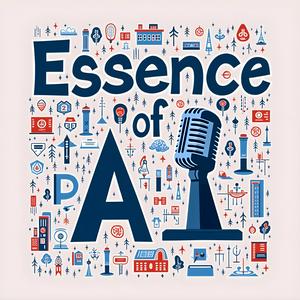Andrej Karpathy: Software Is Changing (Again) – Navigating the Era of AI
Join Andrej Karpathy, former Director of AI at Tesla, as he reveals the profound shifts fundamentally reshaping software, a transformation more rapid and significant than any in the last 70 years.Discover the evolution of software:Software 1.0: Traditional human-written code like C++.Software 2.0: Neural networks, where the "code" is the network's weights, tuned by data (e.g., image recognizers, Tesla Autopilot's neural nets "ate through the software stack").Software 3.0: The latest paradigm, where Large Language Models (LLMs) are programmed directly by natural language prompts, often in English – a new kind of computer and programming language.Karpathy describes LLMs as:Utilities: Centralized providers (OpenAI, Gemini, Anthropic) train models with massive capital expenditure (capex) and serve intelligence via metered APIs, much like an electricity grid.Fabs: Requiring significant capex and housing rapidly growing "tech trees" of R&D secrets.Operating Systems: Increasingly complex software ecosystems, similar to Windows or Linux, orchestrating memory and compute for problem-solving. We're in a "circa 1960sish era" of LLM computing, where it's expensive and centralized, leading to time-sharing models.Explore the unique "psychology" of LLMs, which he likens to "people spirits":Superhuman capabilities: Possessing "encyclopedic knowledge and memory," able to recall vast amounts of information (like Dustin Hoffman's character in Rainman).Cognitive deficits: Prone to hallucinations, "jagged intelligence" (excelling in some areas, making basic mistakes in others), and "anterograde amnesia" (not natively learning or consolidating knowledge over time, akin to Memento). They are also susceptible to prompt injection risks.Karpathy highlights major opportunities in this new landscape:Partial Autonomy Apps: Building software where humans cooperate with AI. AI generates, and humans verify, with an "autonomy slider" for users to control AI involvement. Examples include Cursor for coding and Perplexity for search, emphasizing fast human-AI generation-verification loops and visual GUIs for auditing."Vibe Coding": Natural language programming makes everyone a programmer, enabling rapid development of custom applications without deep programming language expertise.Building for Agents: Rethinking digital infrastructure to cater to LLM agents as a "new consumer and manipulator of digital information." This includes creating lm.txt files for LLM instructions and transforming documentation into machine-readable Markdown or curl commands.Karpathy concludes that while full autonomy ("Iron Man robots") is still distant, the focus should be on building "Iron Man suits" – augmentations that empower humans with an autonomy slider to gradually increase AI involvement over time. It's an "amazing time to get into the industry" with vast amounts of code to be written and rewritten, working with these "fallible people spirits" of LLMs.This podcast was generated by NotebookLM from https://youtu.be/LCEmiRjPEtQ.
